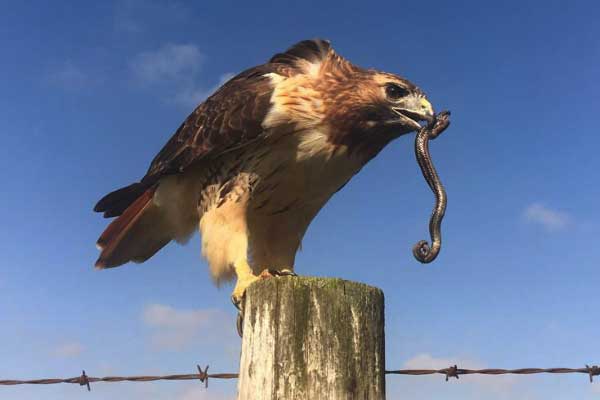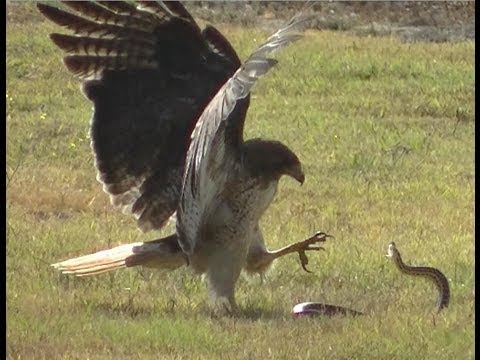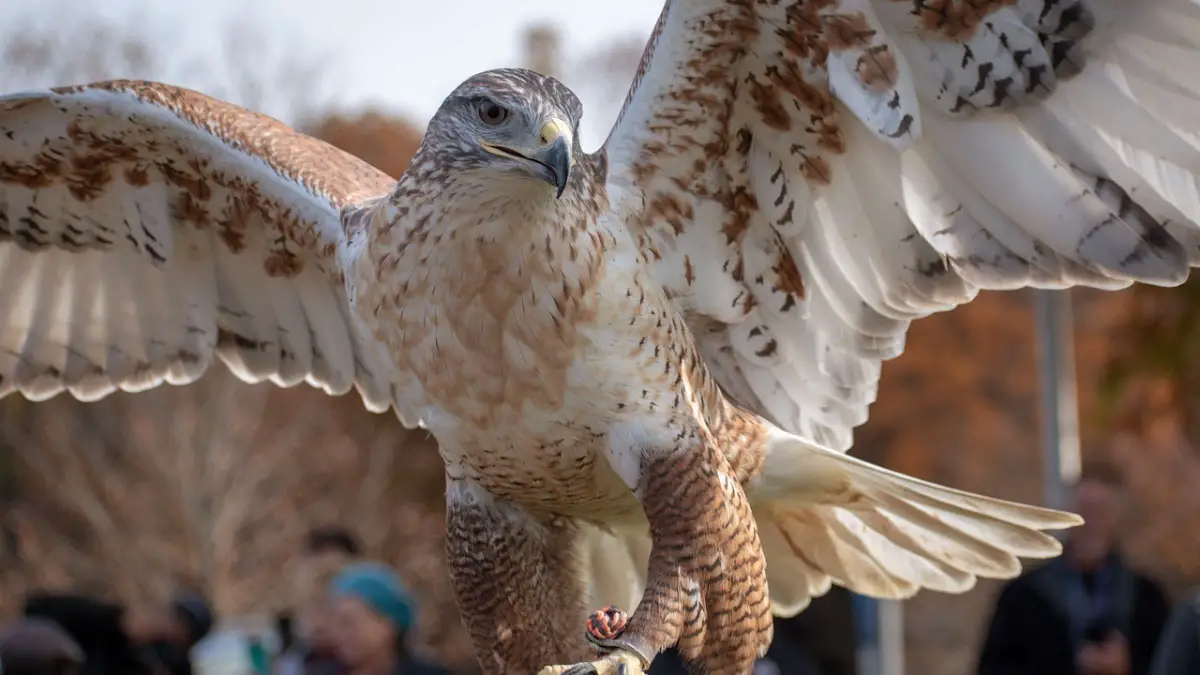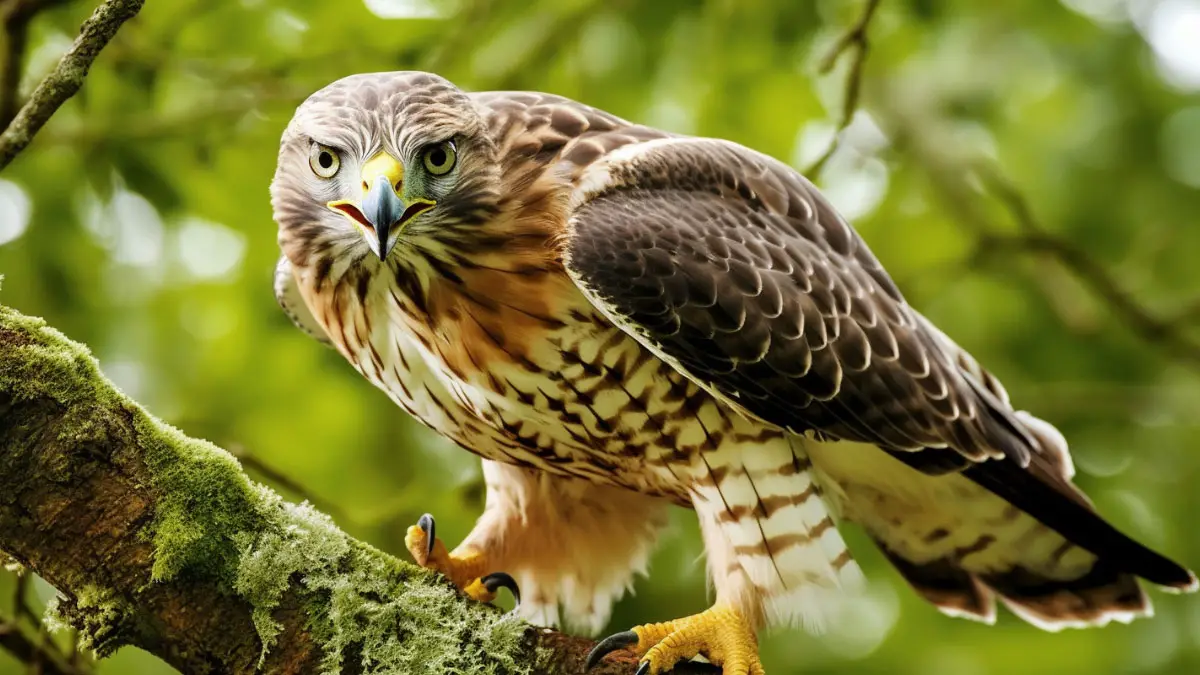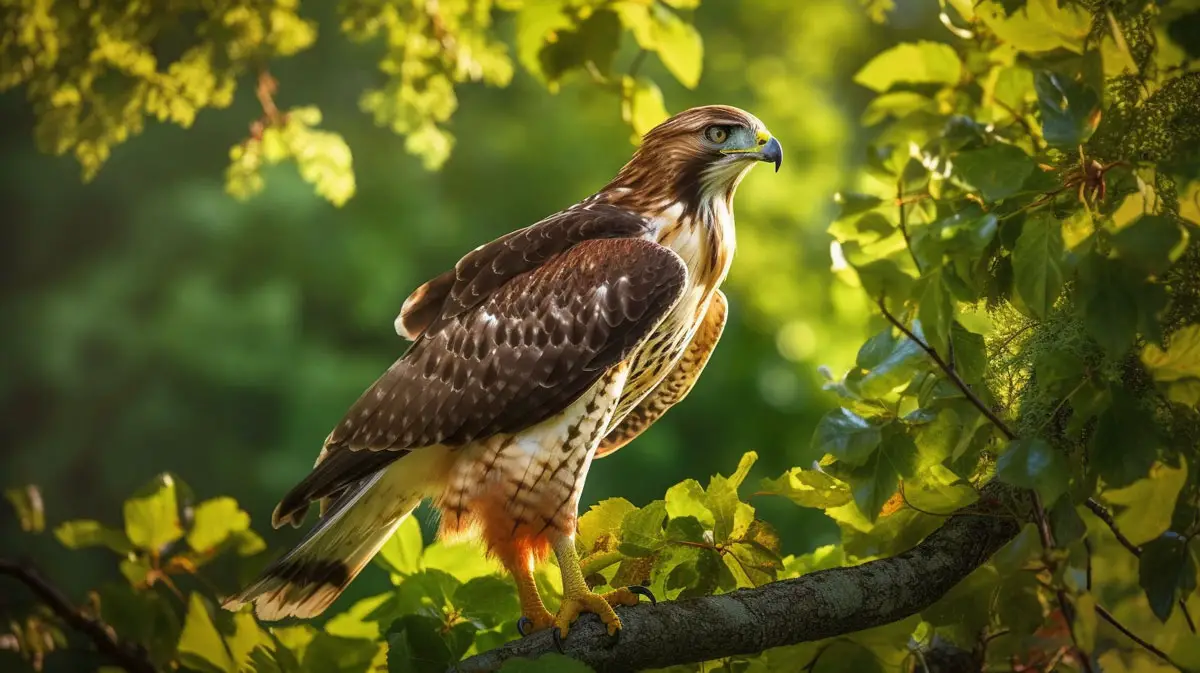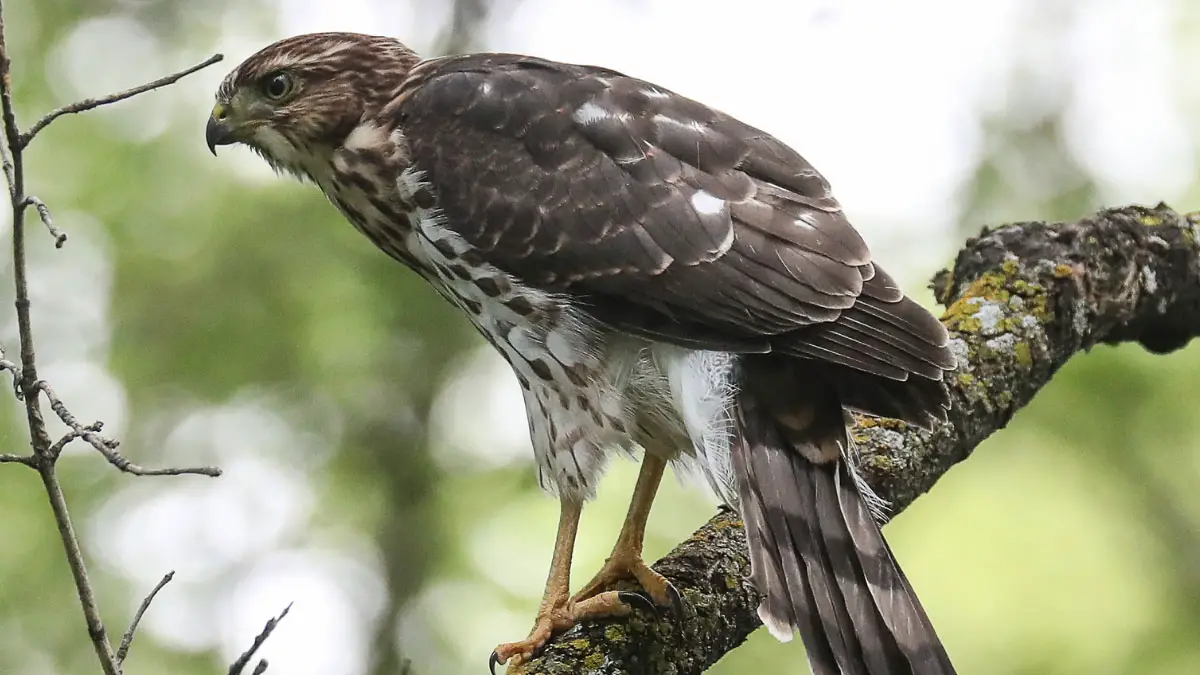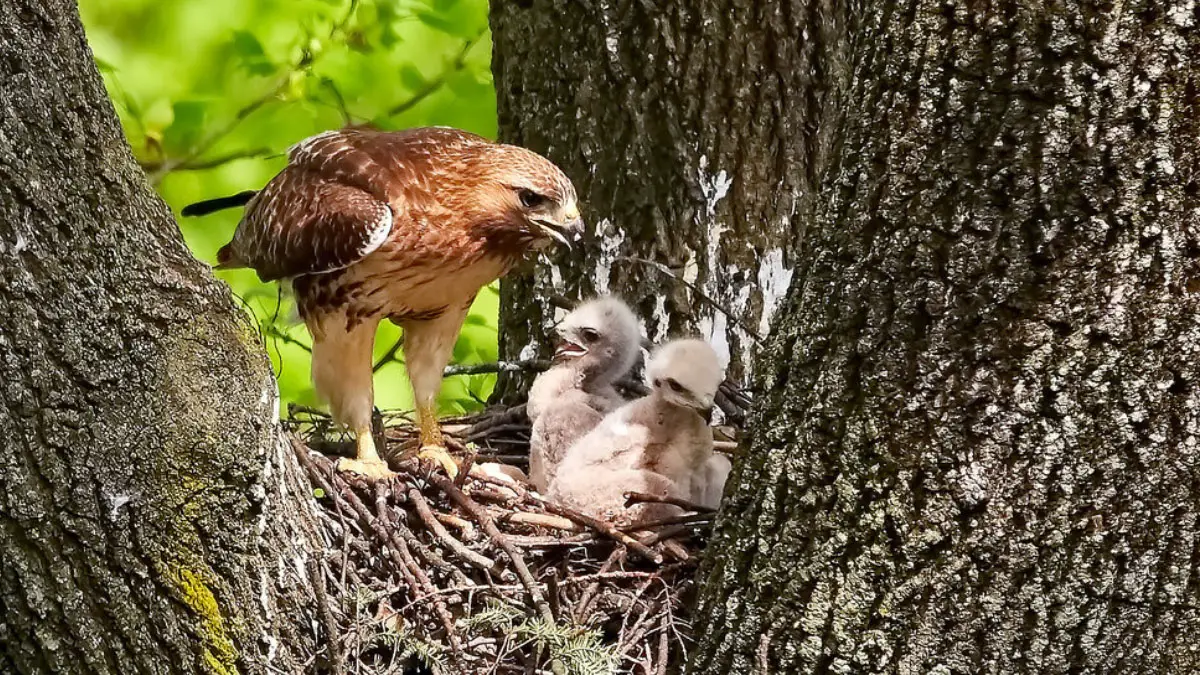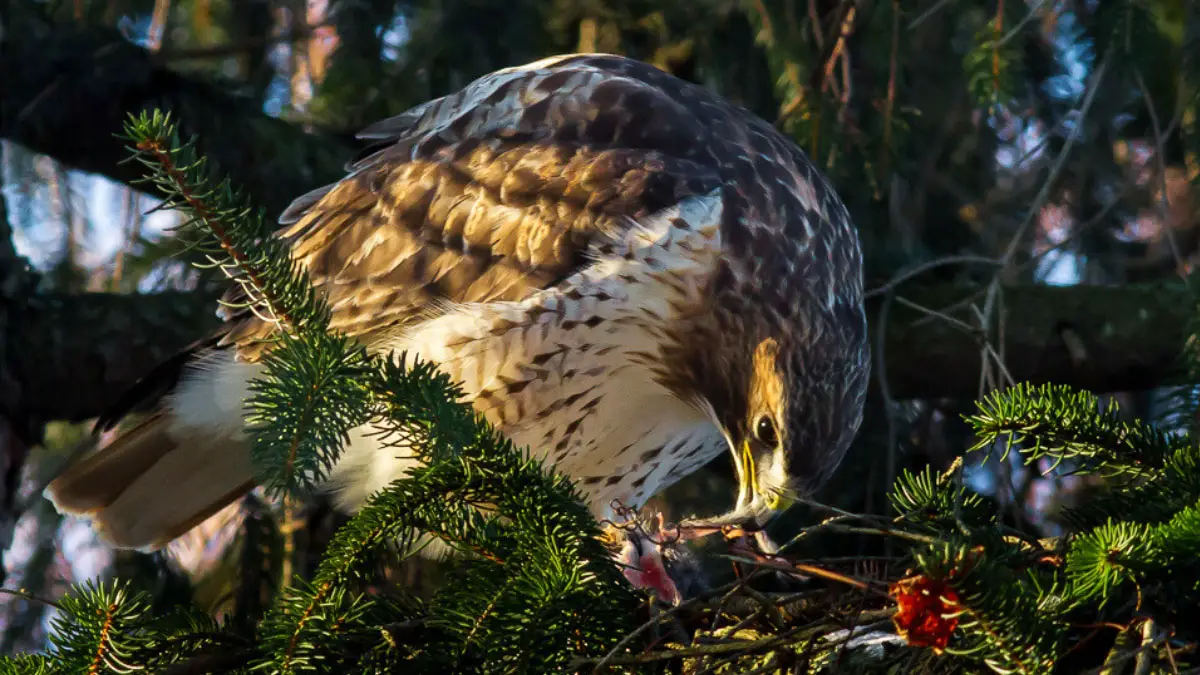This article is about Hawks eating snakes and the questions related to hawks. All the answers have been thoroughly detailed and explained down below.
So do hawks eat snakes? To be straightforward, yes, hawks do eat snakes. Rattlesnakes can be a Red-Tailed Hawks’ favorite food. Moreover, hawks are predatory hunters known for their survival in the wild. They play a crucial role in keeping the ecosystem clean.
What makes it more interesting is it’s more complicated than you can think of. A hawk’s hunting style can vastly be different from other predators. You can also know a lot about their devastating attacks on unarmed prey in this article. Furthermore, we will talk about How A Hawk kills its prey, and we will also learn about its eating habits.
Do Hawks Eat Snakes?
There are over 200 wide varieties of Hawks spread across the Globe. Each Hawk has their own choice of food and preferences. Their hunting style can be different, too, given the species. A snake-eating bird may eat a rattlesnake, small nonharmful snakes, water snakes, rat snakes, bull snakes, as well as species of garter snakes.
So, what type of snakes does a hawk eat? A hawk can eat any type of snake, ranging from the harmless little ones to the bigger venomous ones like the rattlesnakes.
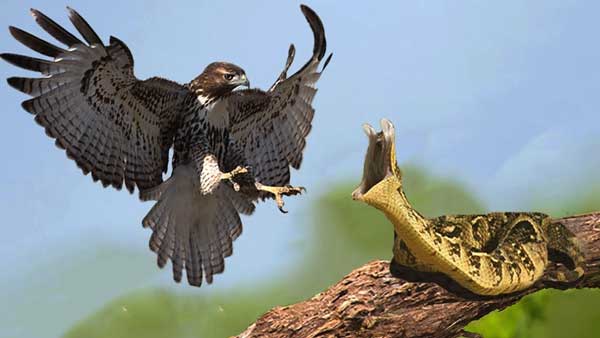
Usually, when a Hawk hatches from its egg, it’s fed by its parents until it’s old enough to leave the nests. It can be as young as 6 weeks. So it’s up to the Hawk to make its close call when hunting snakes. They survive on instinct and hunting, so it makes them more confident and reactionary when hunting for food overall.
Which Hawks Kill Snakes?
Eastern Blizzard, Red-Tailed Hawk, Cooper’s Hawk, Shikra, and the Great Black hawk are some of the Hawks in North America which can kill snakes. Taking on a snake requires tremendous focus for birds as well as the maximum speed they can reach due to a snake’s incredible flexibility. Not all birds can reach that!
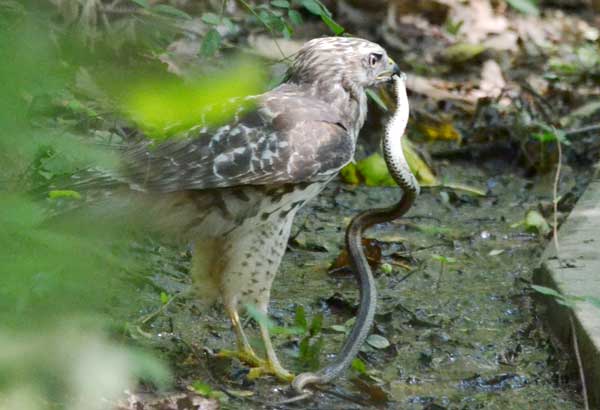
Usual snakes may even be a common prey for a Red-Tailed Hawk which is known to hunt for snakes more often than other species of Hawks! These fierce species of Hawks often hunt prey larger than their own size, so this does not come as a surprise.
Do Hawks Always Hunt For A Snake?
No, not always. Notable research from anthropologists suggests that Hawks may even avoid hunting snakes in many cases if there are other food options available to them. So if there is only a vital need to hunt a snake, a Hawk may resort to that. We can say it’s only feasible in a life and death situation for a hawk where it will take the risk to hunt on a snake.
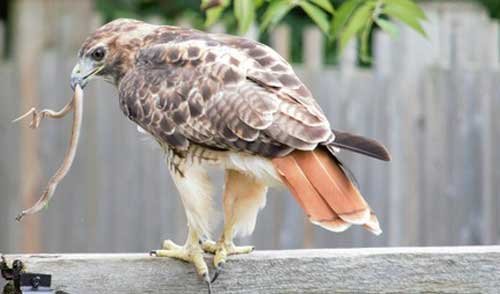
This may also mean the places, no other small mammals to choose from, other targets being too big to attack, lots of snakes being in the same place, and if the Snake is too big for the Hawk to prey on. Under the following circumstances, a Hawk may avoid hunting a snake.
How Does Hawk Kill A Snake?
A hawk can hunt in many ways depending on geographical location, wind, prey, circumstances, and instinct. They will hover above their prey to gather recon on it before they make a run for their prey. This makes the hawk a natural assassin when it comes to hunting.
Not only that, with their incredible force on their wings, powerful talons, and hunting instinct, they are fearsome hunters of the skies akin to their cousin eagles. So how exactly do they hunt their prey?
Some of the common methods by which a hawk can kill include choking, biting on its prey, breaking its necks with its force, and also flying with the prey using its claws and then throwing it off from the sky.
Let’s take the example of a Red Tailed Hawk when hunting a snake, a Red-Tailed Hawk focuses on the blind spot of a snake to attack. Just like its foe, a snake is a predatory animal. So it’s a cage match between two deadly predators. The snake-eating birds attack at an extremely fast pace which catches the snake off guard.
Hawk’s feet have a mechanism that can hold their prey in place with their grip. This makes it easier to hold them and bite them off. The sharp beak of a Red Tailed Hawk can easily rip off any shreds of skin the snake has while its claws hold the prey to its place as it meets its fate.
In many cases, a Hawk’s talon can even dig in on its prey which can cause blood loss, and the prey may die before the hawk uses its final blow on it. This may also mean that the Hawk may start to eat the prey before it’s dead! Just imagine the excruciating pain the snake or any other prey feels right there!
Can A Snake Escape A Hawk?
You must be wondering if this is the case, can the snake escape? In most cases, no.
You see, these birds of prey usually fly at high altitudes, gathering intel on the location and creating a strategy beforehand. When it attacks, it moves with a full thrust giving them the element of surprise.
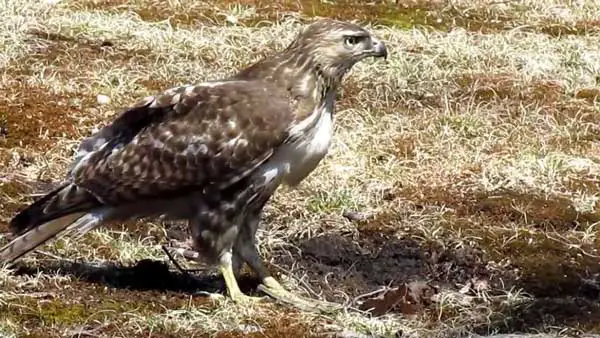
Not only does it startle the prey, but it also makes the hawk’s speed faster, and in moments, it’s feasting on the prey. A hawk’s speed can reach up to 120 MPH, so it’s incredibly difficult for the prey to make a move.
FAQ
Now that we know about hawks and their relationship with snakes. In this section, we will discuss some of the most frequently asked questions regarding the matter.
Yes, it is possible. Usual snakes may kill an inexperienced hawk that tries to eat it. Both Hawk and snakes have pretty good instincts and reflexes which allows them to react quickly to changing situations.
A snake may also choke a Hawk and lock it using its flexibility before releasing the venom and killing it. So, a snake may kill an inexperienced hawk.
No, a snake head contains poison that can be deadly to a Hawk, so it does not eat a snake head to avoid self-inflicting poison.
Conclusion
Hawks are carnivorous, these predator birds survive predominantly on their hunting instinct. They can be deadly to any creature their size in an open field and in packs. So overall, this should answer the question do hawks eat snakes thoroughly.
We can also see how nature, so beautiful yet deadly, can be wild with predatory animals lurking all over the world and see the need for a food chain and the hunting instinct of Hawks.
Do you want to know if hawks eat doves or lizards? Read our articles about it to learn more.
